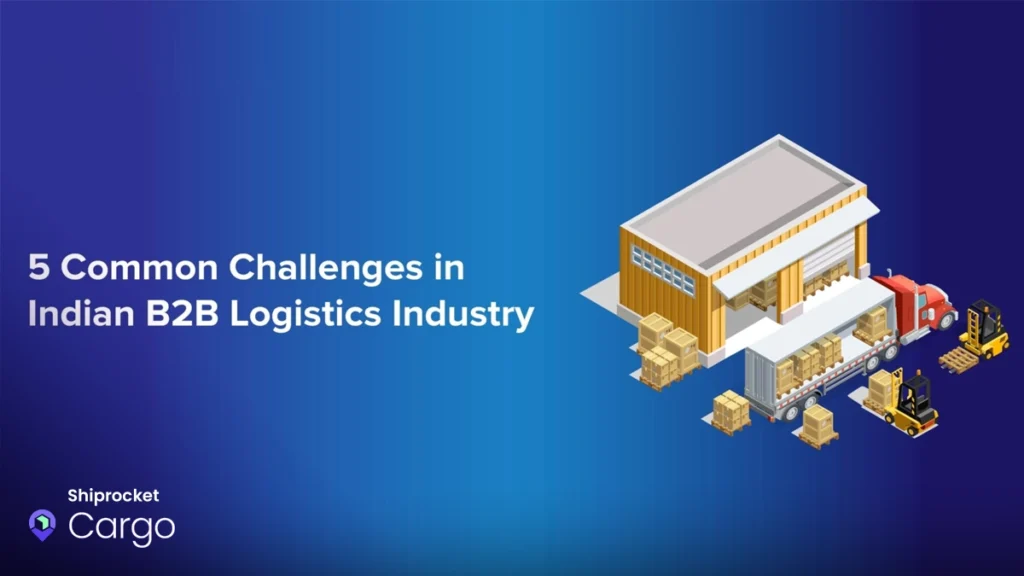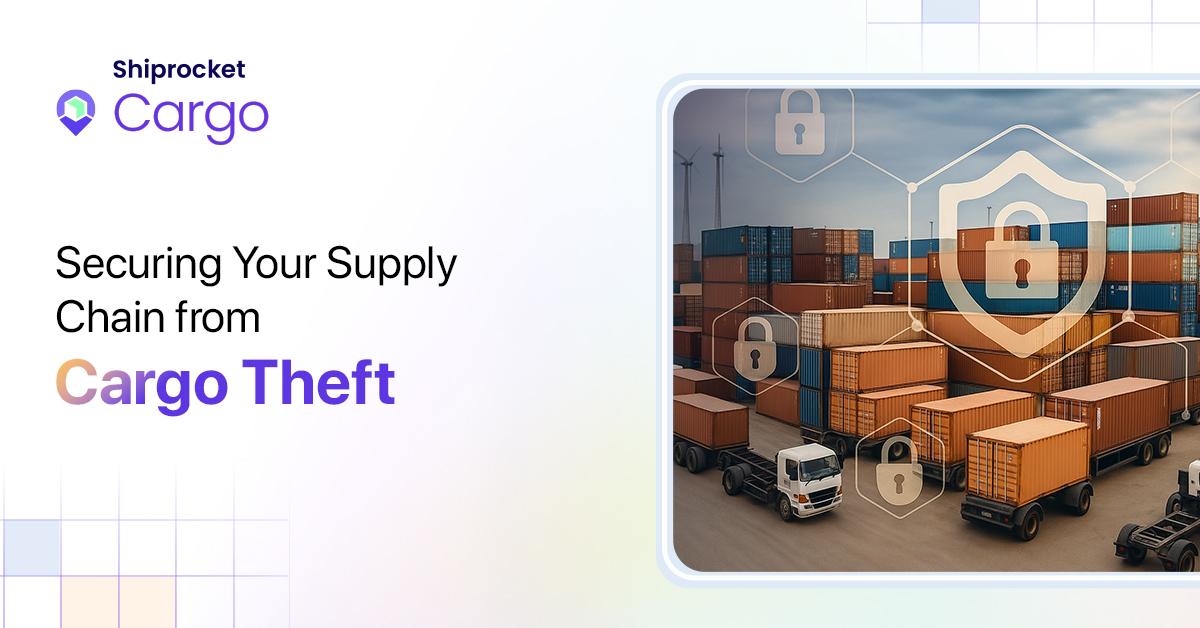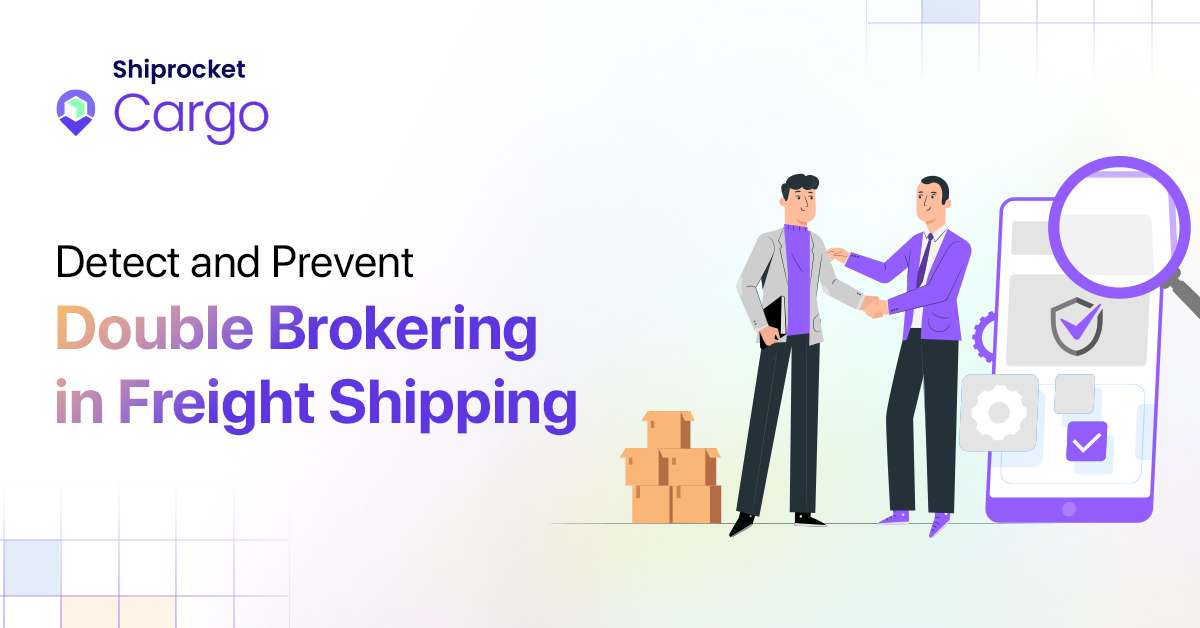Top 5 Common Challenges in Indian B2B Logistics Industry and Their Solutions

The Indian logistics industry is a crucial component of the country’s economic growth, enabling the smooth flow of goods from one place to another. It is no surprise that the Indian B2B logistics market is witnessing substantial growth today. As per a Mckinsey Global Institute’s report, the Indian logistics industry stood firm at $200 billion in 2020 and is expected to reach the value of $320 billion by the end of 2025.
However, India’s B2B (business-to-business) logistics sector faces several challenges that can hinder its efficiency and effectiveness.
Sign up here, if you wish to ship your bulk shipment seamlessly
Challenges of the Indian Logistics Industry
Some of the potential challenges in the Indian logistics industry, and their solutions, are discussed below.
Infrastructure
One of the significant challenges faced by the Indian logistics industry is inadequate infrastructure. The country’s roads, ports, and airports are often overcrowded and poorly maintained, leading to delays and higher costs.
Solution
To address this challenge, the government has been investing in improving infrastructure, such as building new roads and ports and modernizing existing ones. Private companies can also invest in developing their logistics infrastructures, such as warehouses and distribution centers, to improve efficiency and reduce reliance on public infrastructure.
Regulation
The Indian logistics industry is highly regulated, with multiple agencies involved in the movement of goods. This can lead to delays and complications in the supply chain. Moreover, the regulations are strictly monitored and are frequently updated, making it difficult for B2B companies to adhere to compliance requirements. As a result, they miss the delivery deadlines.
Solution
To overcome this challenge, the government has been working to streamline and simplify the regulatory process by introducing electronic filing systems and reducing the number of required permits. Private companies are also working with logistics providers that have experience navigating the regulatory landscape and can help ensure compliance.
Lack of Skilled Labor
The Indian logistics industry is facing a shortage of skilled labor, particularly in the trucking sector.
Solution
To eliminate this roadblock, Indian logistics companies can invest in training and development programs to build a skilled workforce. The government can also provide incentives to encourage the growth of the logistics industry, such as tax breaks or grants for training programs.
Limited Use of Technology
The logistics industry in India needs to be faster to adopt technology, which can lead to inefficiencies and higher costs.
Solution
The challenge can be addressed by companies investing in technology solutions, such as transportation management systems, to improve efficiency and reduce errors. The government can also encourage technology adoption by providing incentives to companies that invest in logistics technology, such as tax breaks or grants.
Inefficient Supply Chain
Inefficiencies in the supply chain, such as delays and bottlenecks often plague the logistics industry in India.
Solution
To address this challenge, companies can invest in improving supply chain management by implementing lean manufacturing principles or adopting advanced planning and scheduling systems. The government can also support the development of a more efficient supply chain by investing in infrastructure and providing incentives to encourage the adoption of best practices.
Related Article: What is the Impact of B2B Logistics on the Indian eCommerce Market?
How Shiprocket Cargo Helps Companies Overcome B2B Logistics Challenges?
Shiprocket Cargo is a tech-oriented B2B logistics customer experience enabler having vast knowledge and experience in shipping bulk shipments pan India. The company incorporates a unique interactive dashboard designed to minimize the time required to place an order for shipping. Additionally, Shiprocket Cargo is among the leading Indian logistics companies offering appointment-based delivery to clients.
The Indian logistics company also offers reverse logistics to the clients, ensuring that the shipments reach the source on time undamaged. Moreover, the B2B solution provider helps businesses improve their performance with timely deliveries.
Conclusion
Overall, the challenges faced by the B2B logistics industry in India are significant, but they can be overcome with the right strategies and solutions. By investing in infrastructure, streamlining regulation, building a skilled workforce, adopting technology, and improving supply chain management, companies can overcome these challenges and build a more efficient and effective logistics system.
To know more about B2B bulk shipments, connect with us.



